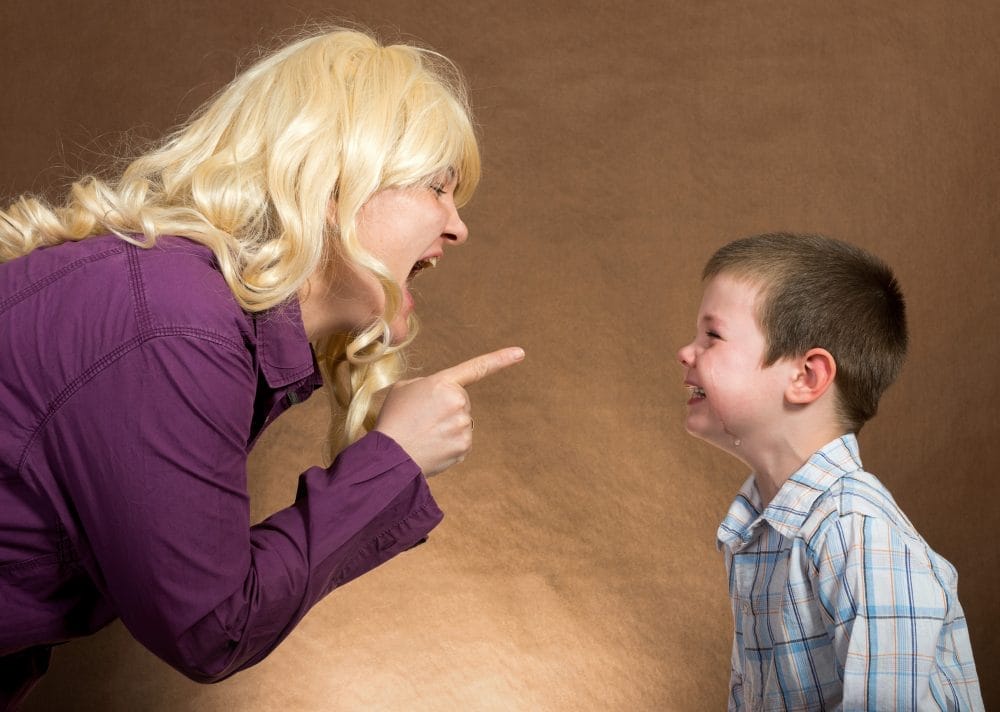Parents are human. In moments of stress, exhaustion, and frustration, words can fly out of a parent’s mouth that linger far longer than the anger that inspired them. Many adults carry memories of careless words from their childhood—sharp phrases spoken by a mother, father, or guardian in a heated moment.
These words can shape self-esteem, color a child’s understanding of love, and build invisible walls between family members for years. When tempers flare, the wrong sentence can echo in a child’s mind long after the argument is over.
1. “Why Can’t You Be More Like Your Sibling?”
Comparing children is a common misstep that parents often wish they could take back. In the heat of the moment, it may feel like a way to motivate, but it usually does the opposite. It plants seeds of resentment between siblings and sows deep feelings of inadequacy. Over time, a child who hears this question may believe they will never measure up. The regret comes when parents realize they have pitted their own children against each other.
2. “You Always Ruin Everything.”
Telling a child they always ruin things cuts to the core of their sense of worth. This sweeping statement places blame on a young person who often does not yet have the tools to handle mistakes. A moment of spilled juice or a broken vase can feel catastrophic when a child hears this phrase. Long after the mess is cleaned, the words stay stuck. Parents frequently regret branding their child with such a harsh label.
3. “I Wish You Were Never Born.”
Few statements hit harder than suggesting a child’s existence is a burden. In anger, a parent might blurt this out, not realizing how permanently it lodges in a young heart. Children who hear these words often grow up feeling unwanted, even if their parent later apologizes. Such a statement can fracture trust and love in ways that take years to mend. Parents who say this usually carry deep remorse for the hurt they caused.
4. “Stop Crying Right Now!”
Dismissing a child’s tears is another common moment of regret. While parents may want to stop a tantrum or regain control, shutting down emotion teaches a child to bottle it up. This stifles healthy emotional development and tells children their feelings are a nuisance. Instead of calming the moment, it can make children feel ashamed of being sad or scared. Many parents wish they had paused to listen instead.
5. “You’re So Stupid.”
Name-calling cuts deep, especially from a parent. In anger, some parents reach for harsh words without grasping how they shape a child’s view of themselves. Intelligence is a sensitive part of any child’s identity, and careless insults can convince them they really are “stupid.” Those words can echo throughout school and adulthood, haunting every challenge. Parents often wish they had chosen to correct behavior without attacking their child’s worth.
6. “I’m So Disappointed in You.”
Disappointment carries a heavy weight when it comes from a parent. Said in anger, it can sound like a judgment on a child’s entire character, not just a single action. Children crave approval from their parents, and this phrase can break their spirit in a moment. Though disappointment is sometimes unavoidable, expressing it while shouting rarely lands constructively. Many parents regret not explaining their feelings calmly and with compassion.
7. “You’ll Never Amount to Anything.”
Predicting failure is a painful curse disguised as an insult. Parents who say this often mean it in the heat of an argument, but it can become a self-fulfilling prophecy for a child who believes it. Telling a young person they are destined to fail plants seeds of self-doubt that can choke ambition. When they look back, parents wish they had encouraged growth instead of tearing dreams apart. Words that diminish hope linger far longer than any punishment.
8. “Get Out of My Sight.”
Ordering a child away in anger feels like rejection in its rawest form. A child who is told to disappear learns that love can be withdrawn when they make mistakes. While parents sometimes need space to cool down, telling a child to leave without explanation can make them feel unwanted. They may wonder if they are loved at all when things get hard. Many parents regret not taking a breath before sending such a cold message.
9. “You’re Just Like Your [Other Parent].”
When a relationship between parents is strained, using the other parent as an insult can be devastating for a child. It makes them feel like they are half-flawed or responsible for adult conflicts they cannot control. This phrase drags a child into the middle of grown-up bitterness. They may struggle with loyalty and self-worth as a result. Parents later regret using their child as a weapon in disputes that should have stayed between adults.
10. “I Hate You.”
Few statements are more damaging than telling a child they are hated. In the middle of a shouting match, some parents blurt out these three words, never fully realizing their power. Children often take things literally and believe what they hear, even if the anger fades quickly. This phrase can carve deep wounds into a child’s sense of safety and love. Many parents wish they could go back and swallow these words before they ever left their lips.
Words Have Impact
Words said in anger can leave scars deeper than any punishment ever could. Children remember careless remarks long after parents have forgotten the argument. While nobody is perfect, and emotions sometimes overwhelm good judgment, it helps to remember that an apology alone may not erase the memory of a cruel phrase.
The good news is that awareness and self-control can protect children from the sting of these regrets. What words do you believe parents should never say to their children?
Read More
10 Topics That Can Destroy a Family Group Chat Instantly
Mornings with Kids: 7 Truths Revealed That Will End the Chaos and Change Your Life!







